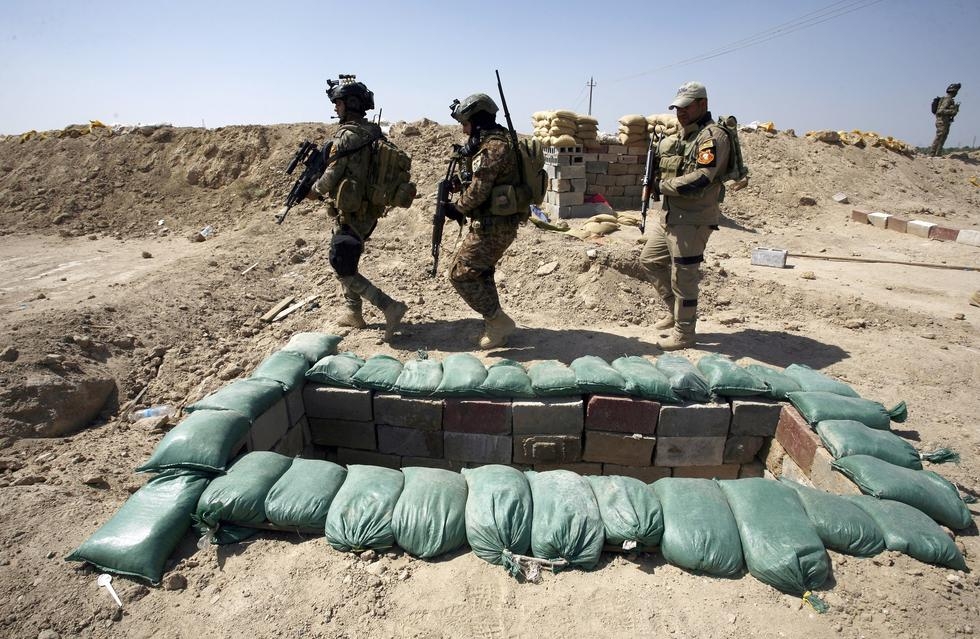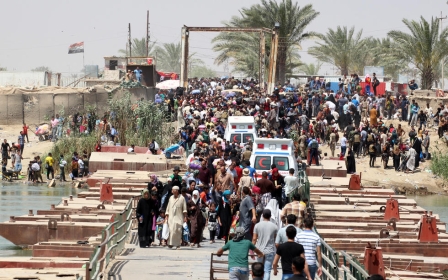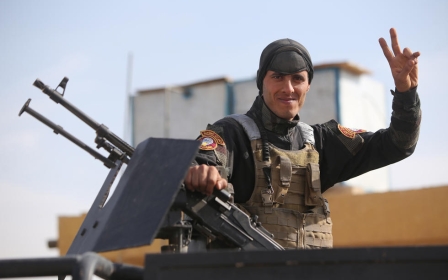Iraq begins military operation to retake Anbar from IS

Iraqi security forces claim to be poised to recapture Anbar, the country’s largest geographic province in the west, after the capital Ramadi fell to the Islamic State group last week.
According to Ahmed al-Assadi, the spokesman for the predominantly Shiite militia of Hashed al-Shaabi, or Popular Mobilisation Units, the operation, led by a mixture of Iraqi security forces and paramilitaries, will head south from the Salaheddin province to Ramadi.
The operation, said Assadi, is called “Labaik ya Hussein”, or “We are at your service, Hussein” in a reference to one of the most revered imams in Shiite Islam.
“The operation’s goal is to liberate those regions between Salaheddin and Anbar and try to isolate the province of Anbar,” Assadi told AFP.
After that, the operation will move to liberate Anbar from IS, Assadi continued, who added he expected this to happen within a few days.
“Our victory will be swift since our preparations are strong,” he added.
His statement was a response to criticisms fielded by US Defence Secretary Ashton Carter, who accused the Iraqi army of lacking the will to fight IS after their chaotic retreat from Ramadi on 17 May.
Iraqi Prime Minister Haider al-Abadi expressed his surprise at Carter’s rebuke, and told the BBC that the defence secretary must have been “fed with the wrong information”.
The White House hastened to pacify the Iraqi leadership, with Vice President Joe Biden calling Abadi to say that he “recognised the enormous sacrifice and bravery of Iraqi forces over the past 18 months in Ramadi and elsewhere.”
The Islamic State group has been advancing steadily in the Anbar province over the past year and a half, capturing key cities such as Haditha and Anah.
Iraqi government control currently includes smaller areas in the east near Ramadi, parts of the town of al-Baghdadi, and the al-Asad air base, where hundreds of US military advisers are stationed.
Abadi, to avoid stoking sectarian tensions, was reluctant to deploy the Hashed al-Shaabi militias in Anbar, where the majority of the population are Sunnis.
Yet these militias are widely regarded as more powerful and better armed than the Iraqi army.
Together, the Iraqi security forces and Hashed al-Shaabi paramilitaries had advanced south and west of Ramadi and retook an area called al-Taesh, said an army lieutenant colonel to AFP.
“The Iraqi security forces and Hashed al-Shaabi have now cut off all supply routes for IS in Ramadi from the south,” said Arkan Khalaf al-Tarmuz, a provincial council member.
The IS takeover of Ramadi has displaced 55,000 people, said the UN. Many of them are stranded and have been prevented from entering other provinces for fear of these areas being infiltrated by IS fighters.
This was slammed by some Sunni Arab politicians and activists as an unconstitutional and discriminatory move against the displaced people.
New MEE newsletter: Jerusalem Dispatch
Sign up to get the latest insights and analysis on Israel-Palestine, alongside Turkey Unpacked and other MEE newsletters
Middle East Eye delivers independent and unrivalled coverage and analysis of the Middle East, North Africa and beyond. To learn more about republishing this content and the associated fees, please fill out this form. More about MEE can be found here.




